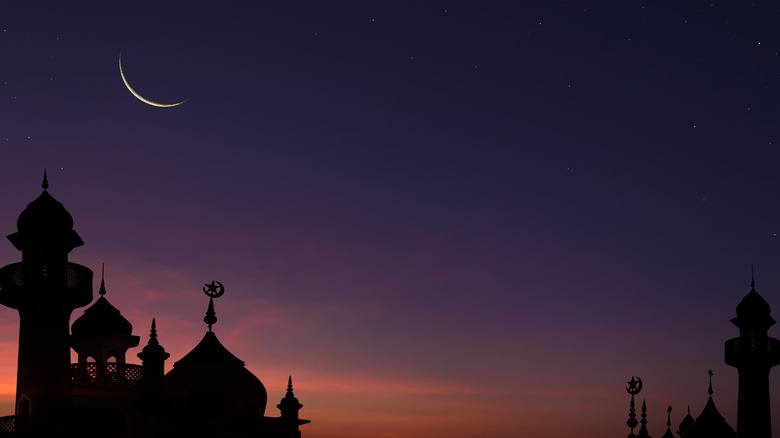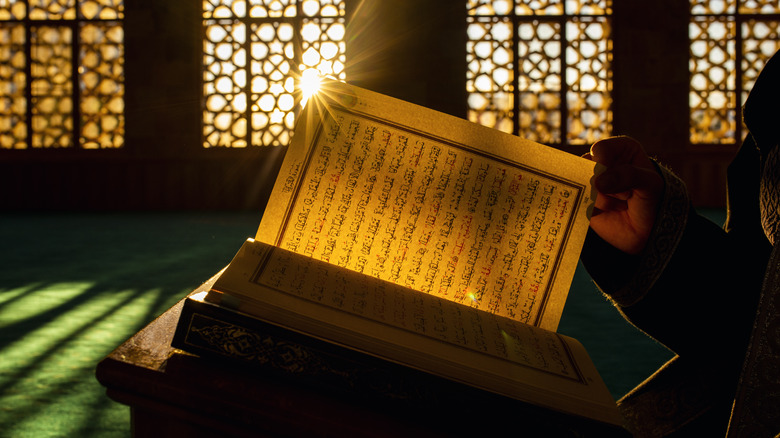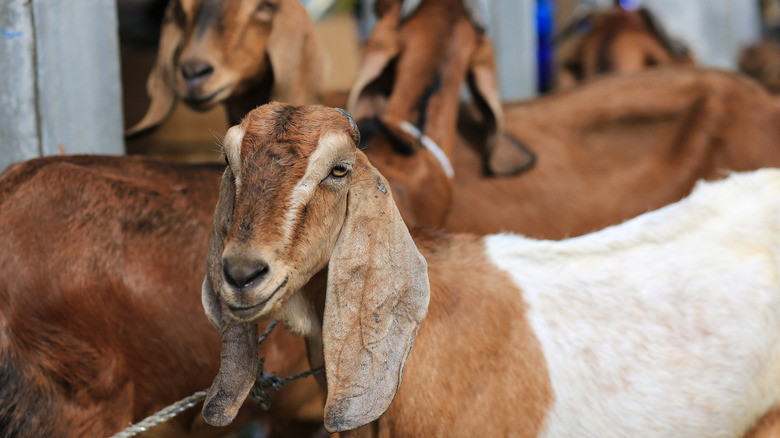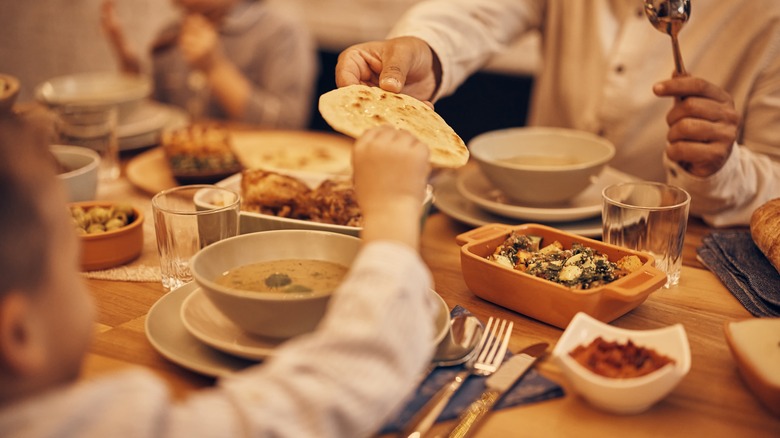What Is Eid Al-Adha And How Is It Celebrated?
Eid al-Adha — which translates to English as "The Feast of Sacrifice" — is an annual celebration in the faith of Islam considered one of the most momentous religious events of the calendar year. The feast takes place in the final month of the Islamic lunar calendar, 10 days after the first sighting of the new moon and at the conclusion of a pilgrimage made by many Muslims to Mecca, Islam's holiest site, known as Hajj, which is one of the Five Pillars of Islam.
Eid al-Adha is a celebration that can last between two and four days depending on the region. The festival is characterized by periods of prayer, the eating of special occasion dishes, and the sacrifice of a goat or similar livestock, the meat of which is then often central to the feast itself. The sacrifice, known as Qurbani, is highly symbolic, a holy act that references one of the most important stories concerning faith and sacrifice to be found in the Quran, the Holy book of Islam: that of Ibrahim, and his son, Ismael.
The roots of Eid al-Adha
Eid al-Adha is a celebration of a story that is familiar in three major world religions: Islam, Judaism, and Christianity. The story is that of Ibrahim — known in the Jewish and Christian faiths as Abraham — whose own tale of faith and sacrifice has inspired believers for millennia.
Ibrahim was a patriarch known for his devotion to Allah and his obedience to His word. One day, Ibrahim had a dream that he interpreted as an instruction from Allah to sacrifice his beloved son, Ismael. Fully trusting His word, Ibrahim went ahead with the sacrifice, though at the last moment, Allah intervened, replacing Ismael on the altar with a goat which Ibrahim killed while Ismael remained unharmed.
The story is important in the Islamic faith as an illustration of the importance of having ultimate faith in the teachings of Islam, whether or not they are understandable or seem unfair, and reminds Muslims of the necessity of sacrifice.
The practice of Qurbani
The holy centerpiece of the Eid al-Adha celebrations is Qurbani, the ritual sacrifice of an animal that recalls the story of Ibrahim and his reward for having ultimate faith and willingness to sacrifice his son for Allah. Typically, the animal sacrificed is a goat, sheep, or camel, which must be of a certain age, in good health, and slaughtered by the traditional halal method.
However, the household in question traditionally only keeps one-third of the meat from the animal. Another third is given to friends of the family, while a third is donated, with special groups such as Muslim Charity redistributing the donated meat to needy Muslims around the world.
One of the Five Pillars of Islam is Zakat, the practice of wealthy Muslims — those whose wealth more than meets their needs — giving a portion of their income to charity. Qurbani is practiced in much the same way, with some Muslim belief systems stating that all adult men and women who are capable and of a certain level of wealth are obliged to perform the sacrifice and divide the meat among themselves and others in the traditional way.
The Lesser Eid and the Greater Eid
For many non-Muslims, the word "Eid" may seem comparable to other major holidays of other religions, such as Christmas in Christianity and Hanukah in Judaism. However, it is unwise to assume that Eid simply refers to Eid al-Adha, the Feast of Sacrifice. The reason for that is there are in fact two Eids in Islam, the other being Eid ul-Fitr. The word Eid translates in English to "festival" or "celebration."
Just as Eid al-Adha marks the end of the Pilgrimage of Hajj, Eid ul-Fitr is the celebration that marks the end of Ramadan. During Ramadan, which takes place in the ninth month of the Muslim lunar calendar, devout Muslims from around the world enter into a monthlong period of fasting in which they vow to fast from sunrise until sunset each day, with not even a sip of water passing their lips.
Eid ul-Fitr is therefore a joyous occasion for Muslims observing Ramadan, as it marks the end of the fasting period and the return of culinary freedom. However, Eid -ul-Fitr is considered the "Lesser Eid," being typically three days long and therefore shorter than End al-Adha, or "Greater Eid," in many countries.



